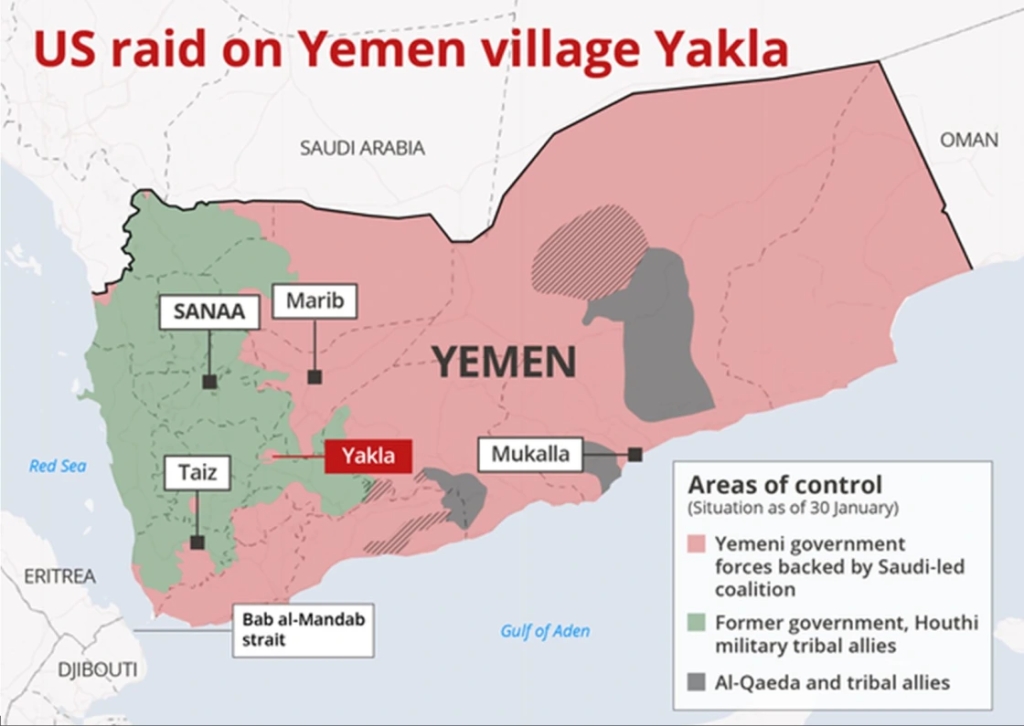
W.J. Astore
I haven’t followed the Saudi war in Yemen that closely. But I’d wager most Americans know far less about it than I do. I know the U.S. has been supporting Saudi Arabia in its bloody repression of Iranian-backed Yemeni forces (the Houthis), providing critical resources such as aerial refueling, intelligence sharing, and, most importantly, an endless supply of weaponry. I know this support has been couched as consistent with a “war on terror,” when it’s driven much more by the U.S. need to appease Saudi rulers for economic reasons (primarily the petrodollar and oil exports). I know the Yemeni people have suffered greatly due to famine and diseases exacerbated by constant warfare and economic blockades. I know Joe Biden campaigned against the war and criticized Saudi officials but as president has done nothing to stop it. And I know a bipartisan force in Congress is trying to take steps to end America’s involvement in what essentially constitutes a genocide against the Yemeni people.
Occasionally, Yemen has appeared in my articles here, as with the SEAL Team fiasco launched by President Trump in late January 2017. (One Navy SEAL died in the raid; his father later accused the Trump administration of hiding behind the death of his son instead of admitting the raid had been a murderous failure.) In passing, I’ve mentioned Yemen in a few articles like this one, but again it’s not something I’ve written about in detail. I’ve been focused on the Afghan war, the military-industrial complex, the new Cold War, plans to build a new generation of nuclear weapons, and on and on.
Fortunately, a freelance journalist based in Yemen, Naseh Shaker, contacted me with a few questions that got me thinking a bit more about Yemen and the U.S. government’s role there. His article addresses whether Congress has any chance of invoking the War Powers Act to limit or end America’s involvement in this brutal war, given the reality that President Biden is once again courting and kowtowing to the Saudis. You can read his article here, which includes a few comments by me, but it may be useful to include his original questions to me, and my responses to them. He asked me to keep my responses short, 2-3 sentences, which I did:
Questions by Naseh Shaker
1- Why the US is sanctioning Russia for invading Ukraine but when it comes to the Saudi invasion of Yemen, the US is providing the Saudis with all logistics and weapons as if it is the American war, not the Saudi war?
2- Why Biden doesn’t fulfill his promise to end the war in Yemen?
3- Is invoking the War Powers Resolution (WPR) an attempt from Democrats to cover Biden’s scandal of not ending the war in Yemen as he promised?
4- If WPR is passed, does it mean the US is responsible for Saudi war crimes in Yemen given that it is providing the coalition “intelligence sharing” and “logistical support for offensive Saudi-led coalition strikes”?
Answers by William Astore
Question 1: The US sees Russia as a rival and an enemy. The US sees Saudi Arabia as an ally and a friend. Put differently, the US economy owes much to the petrodollar and the Saudi appetite for expensive American-made weaponry.
Question 2: Because he doesn’t really care about the Yemeni people. He cares about maintaining good relations with the Saudis.
Question 3: Unclear. But I don’t think Democrats consider it a “scandal” that Biden failed to keep his promise. There are many other promises Biden failed to keep, such as a $15 federal minimum wage for Americans, and these failed promises are not treated as “scandals.”
Question 4: The US government refuses to take responsibility for its own war crimes, so it certainly isn’t going to admit to responsibility or culpability for Saudi crimes.
Ignorance is a major enemy in the USA. We owe it to ourselves as citizens (and to what’s left of our democracy) to inform ourselves about what our government is up to, especially when what it’s up to is killing, whether directly or indirectly, untold numbers of people around the world.
The war in Yemen has killed at least 377,000 people. To what end? For what purpose? How is aiding the Saudis in this war remotely related to the defense of our country?
End the killing. End the wars. Let’s do something right for a change.




